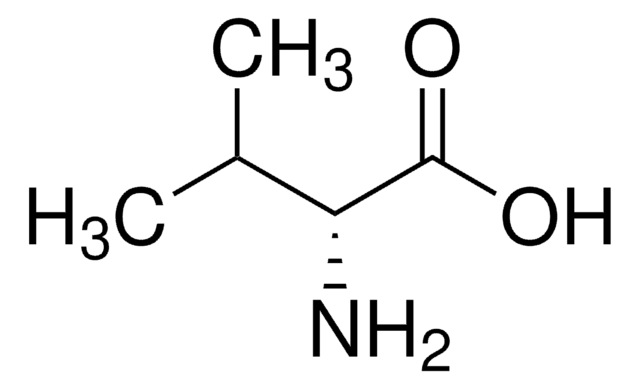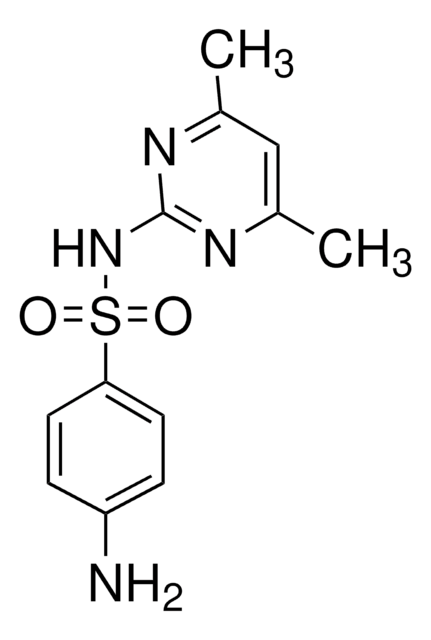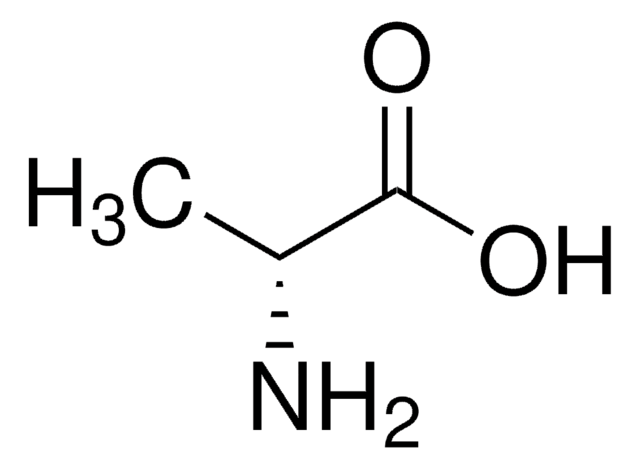V1255
D-Valine
suitable for cell culture, BioReagent
Synonyme(s) :
(R)-α-Aminoisovaleric acid, D-2-Amino-3-methylbutanoic acid
About This Item
Produits recommandés
Source biologique
synthetic (organic)
Niveau de qualité
Gamme de produits
BioReagent
Forme
powder
Technique(s)
cell culture | mammalian: suitable
Pf
>295 °C (subl.) (lit.)
Conditions d'expédition
ambient
Température de stockage
room temp
Chaîne SMILES
CC(C)[C@@H](N)C(O)=O
InChI
1S/C5H11NO2/c1-3(2)4(6)5(7)8/h3-4H,6H2,1-2H3,(H,7,8)/t4-/m1/s1
Clé InChI
KZSNJWFQEVHDMF-SCSAIBSYSA-N
Vous recherchez des produits similaires ? Visite Guide de comparaison des produits
Description générale
Application
- Dulbecco′s modified Eagle′s medium (DMEM)/Nutrient Mixture F-12 Ham (F-12) for mice renal proximal tubule cell (RPTC) culture
- endothelial cell growth medium MV2 for rat lung microvascular endothelial cell (RLMEC) culture
- DMEM/F-12 for mouse tracheal epithelial cell (MTEC) culture
Actions biochimiques/physiologiques
Code de la classe de stockage
11 - Combustible Solids
Classe de danger pour l'eau (WGK)
WGK 3
Point d'éclair (°F)
Not applicable
Point d'éclair (°C)
Not applicable
Équipement de protection individuelle
Eyeshields, Gloves, type N95 (US)
Faites votre choix parmi les versions les plus récentes :
Déjà en possession de ce produit ?
Retrouvez la documentation relative aux produits que vous avez récemment achetés dans la Bibliothèque de documents.
Les clients ont également consulté
Notre équipe de scientifiques dispose d'une expérience dans tous les secteurs de la recherche, notamment en sciences de la vie, science des matériaux, synthèse chimique, chromatographie, analyse et dans de nombreux autres domaines..
Contacter notre Service technique











